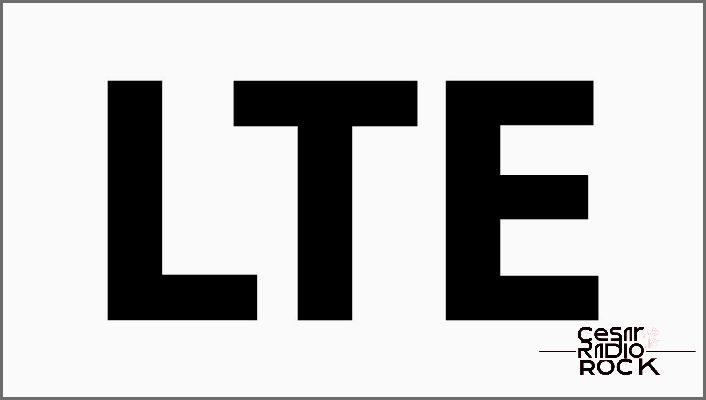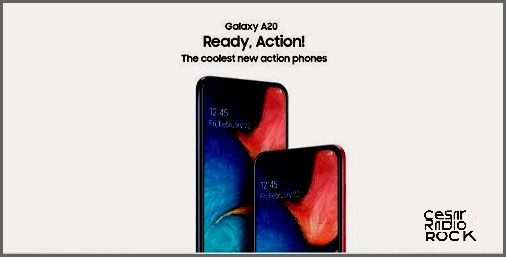Can the Samsung a20 Connect to LTE Networks?
Hey there! So, you’re wondering if the Samsung a20 supports LTE, huh? Well, let me shed some light on that for you.
Picture this: you’ve got the shiny Samsung a20 in your hands, eager to connect to lightning-fast LTE networks. Well, I’m here to tell you that this device is totally ready to hop on board the LTE train!
LTE, or Long Term Evolution, is the latest and greatest in wireless communication technology. It’s all about speed, baby! With LTE, you can browse the web, stream videos, and download files in a flash. It’s like having a full-fledged internet superpower right at your fingertips.
But back to the Samsung a20. This sleek device is equipped with LTE capability, meaning you can experience the wonders of high-speed connectivity on this little beauty. Whether you’re scrolling through social media, catching up on your favorite TV shows, or video chatting with friends, the Samsung a20 has got you covered.
Not only does the Samsung a20 support LTE networks, but it also has a host of other features that make it a top-notch choice. With a vibrant display, powerful performance, and a long-lasting battery, this phone is a true multitasking champion.
So, if you’re ready to take your mobile experience to the next level, the Samsung a20 is the perfect companion. Get ready to zoom through your daily tasks and stay connected with the world, all thanks to the magic of LTE.
Go ahead, grab your Samsung a20, and embrace the speed of LTE. The future is in your hands, my friend!

The Samsung Galaxy A20 is one heck of a phone from the 2019 series. It falls in the mid-range category, but it’s got some cool features. It’s perfect for folks who want a decent smartphone at an attractive price. However, if you’re a total tech whiz, it might not be your best bet.
If you’re thinking about getting yourself a Samsung A20, chances are, you’ve got a bunch of questions. Don’t you worry, I’ll try to answer some of them and hopefully help you make up your mind. One common question that pops up is whether this phone has LTE or not.
Does This Model Have LTE?
One crucial thing to consider is the kind of network your phone uses. Well, good news! The Samsung Galaxy A20 has 4G LTE connectivity. Now, what does that mean, you ask? Allow me to break it down using everyday language. LTE stands for Long Term Evolution. Basically, it’s a fancy term for saying that LTE technology is always getting better and evolving.
A few years ago, those brilliant scientists were working hard to bring us 4G networks. But at the time, they just couldn’t meet the minimum speed requirements for 4G. So, they came up with something in the meantime. And that’s how they created the LTE network.
The difference between LTE and the old 3G network is huge. LTE is super speedy and way smoother than 3G. It can even work ten times faster than its older sibling, giving you lightning-fast download speeds. Plus, it generally improves your online experience as a whole.
LTE is like a bridge between 3G and 4G. It’s way better than regular 3G, but it’s not quite the grand 4G we’ve all been dreaming of. It was a way of enjoying faster internet while we all waited for true 4G to come along.
Now, here’s the interesting part. The bigwigs in charge allowed phone makers to label their LTE phones as 4G in certain cases. The connection has to be super fast and way better than regular 3G. And guess what? The A20 meets those criteria. That’s why we can confidently say it rocks a 4G LTE network.

The Distinction between LTE and 4G
Many folks out there aren’t quite sure about the variance between 4G and LTE. Allow me to shed some light on the subject so that you may make an informed decision when choosing your next phone.
The advent of fourth-generation connectivity, also known as 4G, was a major breakthrough in the realm of technology. Let me provide you with a rundown of the features that set it apart from its predecessors:
- Complete access to digital media on mobile devices.
- Considerably swifter download speeds.
- Speedier streaming of videos.
On the other hand, LTE occupies a place somewhere in the middle. When compared to 3G, it offers significant improvements. However, these enhancements aren’t substantial enough to warrant the classification of a whole new generation of networks.
To help illustrate this, I’ll draw a parallel to the iPhone S series. Think of the disparity between the iPhone X and iPhone XS. The latter represents an upgrade, a better version of the former, as confirmed by many satisfied customers. Yet, the distinction is not substantial enough to place it in the next-generation category.
In terms of speed, 4G edges ahead of LTE 4G. Nevertheless, I am of the opinion that the average user will find LTE 4G more than satisfactory. Unless you require lightning-fast internet for work, you’ll be just fine. If your internet usage pertains to everyday activities, LTE won’t let you down.
From a technical perspective, LTE does not meet all the 4G standards. This is a crucial piece of information for developers who are tirelessly working to bring forth even more advanced generations of networks. However, for the majority of regular users, the perceived difference will be negligible.
Making a Decision
Suppose you are contemplating the purchase of the A20 model. It’s worth noting that this device boasts excellent LTE connectivity. It is not only affordable but also reliable, delivering exceptional value for your hard-earned money. While it may fall into the lower mid-range category, it does come equipped with some nifty features typically found in higher-end models. Ultimately, the decision rests with you.
Final Thoughts
Now that you’re more well-versed about the Samsung Galaxy A20, considering all the factors, I wholeheartedly believe that this phone is an excellent choice. Naturally, the decision ultimately hinges on what you seek in a phone. For some individuals, the camera takes precedence. For others, it’s the battery life. And then there are those who find the network performance to be of paramount importance.
Are you partial to 4G or LTE? Do you detect a major disparity between the two? We’re eager to hear your thoughts in the comments section below.
